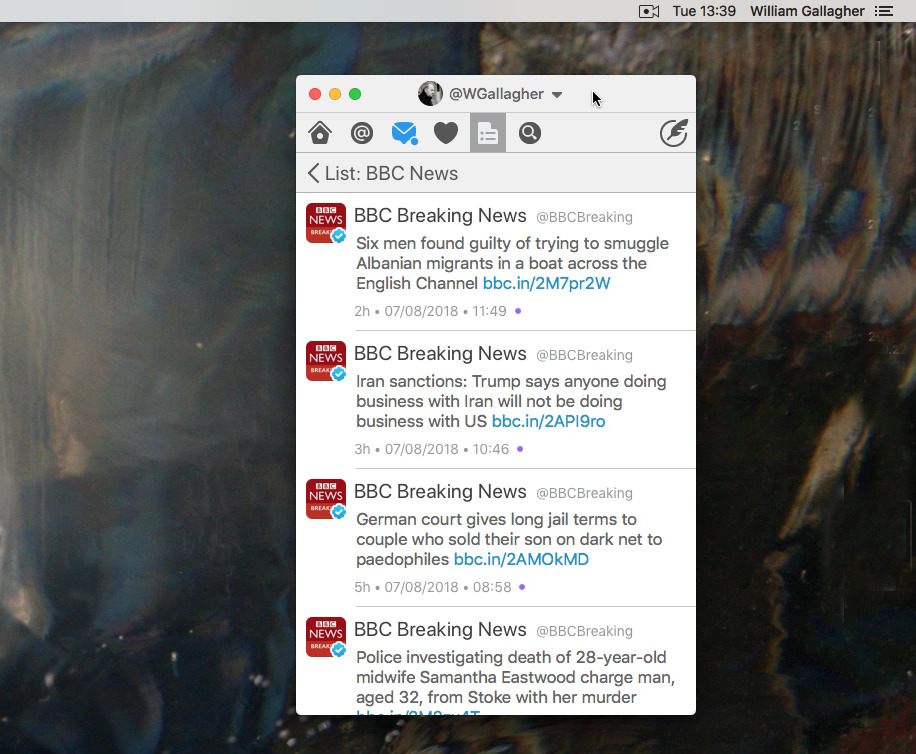- This Is Serious Police Business Mac Os Catalina
- This Is Serious Police Business Mac Os 7
- This Is Serious Police Business Mac Os C
Newsletter
Subscribe to our Threatpost Today newsletter
And Parallels 7 is the first version that lets you run the non-server version of OS X in a VM on your Mac. While this is primarily of interest to software developers, it's cool just to know you. An app in the Mac App Store is NOT allowed to install anything into the main OS X system or system kernel. This is one of the reasons you do not see antivirus software being sold in the Mac App Store other than something like ClamXAV which doesn't install anything into the main OS X system folder and hence, allowed to be sold and downloaded. Reviews “This is the Police 2 is a great sequel to such an underrated hidden gem from 2016. The developers have taken what they learnt from the original game and improved on everything from the story to the core gameplay mechanics.”. Explore the world of Mac. Check out MacBook Pro, MacBook Air, iMac, Mac mini, and more. Visit the Apple site to learn, buy, and get support.
Join thousands of people who receive the latest breaking cybersecurity news every day.
The administrator of your personal data will be Threatpost, Inc., 500 Unicorn Park, Woburn, MA 01801. Detailed information on the processing of personal data can be found in the privacy policy. In addition, you will find them in the message confirming the subscription to the newsletter.
Infosec Insider Post
Infosec Insider content is written by a trusted community of Threatpost cybersecurity subject matter experts. Each contribution has a goal of bringing a unique voice to important cybersecurity topics. Content strives to be of the highest quality, objective and non-commercial.
Sponsored Content
This Is Serious Police Business Mac Os Catalina
Sponsored Content is paid for by an advertiser. Sponsored content is written and edited by members of our sponsor community. This content creates an opportunity for a sponsor to provide insight and commentary from their point-of-view directly to the Threatpost audience. The Threatpost editorial team does not participate in the writing or editing of Sponsored Content.
SecurityFocus columnist Scott Granneman says that the FBI uses Macs, according to a recent article in which Granneman talks about his meeting with Dave Thomas, Assistant Special Agent in Charge of the FBI’s St. Louis Division.
Thomas talked with Granneman at length about the risks and perils faced by Windows users these days, including trojan horses, viruses and worms. Granneman noted in the article that Thomas uses an IBM ThinkPad notebook.
“I asked him about that, and he told us that many of the computer security folks back at FBI HQ use Macs running OS X, since those machines can do just about anything: run software for Mac, Unix, or Windows, using either a GUI or the command line. And they’re secure out of the box,” said Granneman. “In the field, however, they don’t have as much money to spend, so they have to stretch their dollars by buying WinTel-based hardware. Are you listening, Apple? The FBI wants to buy your stuff. Talk to them!”
It gets better, at least if you’re a hacker: Thomas told Granneman, “If you’re a bad guy and you want to frustrate law enforcement, use a Mac.”
“Basically, police and government agencies know what to do with seized Windows machines,” said Granneman. “They can recover whatever information they want, with tools that they’ve used countless times. The same holds true, but to a lesser degree, for Unix-based machines. But Macs evidently stymie most law enforcement personnel. They just don’t know how to recover data on them.”
We’ll let it go for the moment that Mac OS X-based systems are indeed Unix-based machines.
This Is Serious Police Business Mac Os 7

This Is Serious Police Business Mac Os C
“So what do they do?” asked Granneman. “By and large, law enforcement personnel in American end up sending impounded Macs needing data recovery to the acknowledged North American Mac experts: the Royal Canadian Mounted Police. Evidently the Mounties have built up a knowledge and technique for Mac forensics that is second to none.”